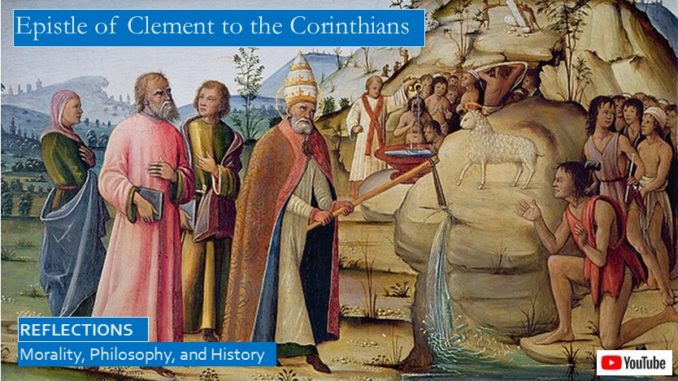
The Epistle of Clement of Rome to the Corinthians was discovered in a Bible given to King Charles I by the patriarch of Jerusalem in 1628. Scholars date this epistle at the end of the first century since it refers to the persecutions under Domitian, which means that Clement probably had met the original apostles. The translator says he is familiar with at least some of the Pauline Epistles, though it would be several centuries more before a biblical canon is recognized.
Bart Ehrman in his lectures on the Apostolic Fathers observes that this is the earliest instance where the church of Rome tries to assert its authority over the affairs of another church. St Paul’s letter to the Corinthians is addressed to all the members, but by the time of the second generation an established church leadership has evolved.[1]
Our YouTube video includes information not in our blog: https://youtu.be/ntcFn7T_POU
The best place to purchase the eBook version of the Ante-Nicene Fathers, Volume 1, is www.christianbook.com
The translator notes that Clement is quoting Scripture from memory, and his memory is not as accurate as St Augustine’s or the apostles, he so thoroughly mixes up the sources and changes wording here and there that he despairs of footnoting the source of the various quotes. Many quotes from Scripture you will recognize, but more than a few quotes are impossible to attribute.
Clement addresses his epistle to the rancorous and troublesome Corinthians, some younger hot-heads deposed the leaders appointed in their congregation. The translator notes that “from beginning to end of the letter Clement is deeply preoccupied with the heinous sin of pride: the pride and jealousy of a few ambitious malcontents who have split the church of Corinth and destroyed its peace.”
Clement starts his epistle by praising the Corinthians, he praises their piety, he praises their hospitality, which Homer in the Odyssey reminds us is all important in the ancient Greek world where there are few inns where it is safe to stay. Elders are respected, home life is tranquil, everyone in the family fulfills his role. “Humility, too, and a complete absence of self-assertion were common to you all; you preferred to offer submission rather extort it; giving was dearer to you than receiving.” “You harbored no resentments, . . . You mourned for a neighbor’s faults, and regarded his failings as your own. Never did you grudge a kindly action; always you were ready for any deed of goodness.”
But then “envy and jealousy and strife and dissension sprang up.” Clement offers the example of Cain and Abel, how the Lord accepted Abel’s offering, but ignored Cain’s offering, causing Cain to take offense rather that to repent and discover why his offering was ignored. The Lord challenged Cain, “Why are you so crestfallen? You were right to bring me an offering, but wrong in the decision you made. Was that not a sin?” Clement warns “how envy and jealousy brought about the murder of a brother.”
Clement urges us “to have a little humility, let us forget our self-assertion and braggadocio and stupid quarreling,” and do as Jesus says:
“Be merciful, that you may obtain mercy,
forgive, that you may be forgiven.
What you do yourself, will be done to you;
what you give, will be given to you;
as you judge, so you will be judged.;
as you show kindness, so kindness will be shown to you.”
How many of us have seen church council meetings where there was much ill will and arguing? How often have you seen Facebook Bible groups where all everyone does is shout at each other? How quick are we to argue, how slow we are to seek peace with our neighbor. “Christ belongs to the lowly of heart, not to those who would exalt themselves over His flock.”
Who is truly happy?
Clement asks us, “Whose heart is set on a long life and days of happiness?
Keep your tongue free of evil, and your lips from uttering deceit;
turn away from wrong, and do what is good;
seek peacefulness, and make that your aim.”
A curious passage in Clement compares the resurrection of the body to the myth of magical Phoenix bird that lives for five hundred years, and in its decaying flesh breeds a small grub that matures and grows wings as a new Phoenix. Then it flies to Egypt carrying the nest and bones of its predecessor to the alter of the Sun before flying back.
Clement urges us to “clothe ourselves in a mutual tolerance of one another’s vies, cultivating mutual humility and self-restraint, avoiding all gossiping and backbiting, and earning our justification by deeds and not by words.” Gossiping, backbiting, harming another’s reputation, is the same as bearing false witness.
The world orders us to be confident, to have a positive attitude, to have pride in our abilities. But Clement would push back, he teaches that “self-assertion, self-assurance, and a bold manner are the marks of men accursed of God; but rather it is those who show consideration for others and are unassuming and quiet, who win God’s blessing.” The key phrase is the holy among us are those who show consideration for others, so often the successful in our cruel and competitive world run over their neighbor in their drive for success.
How often do we hear that the gifts of God include a good career making good money, a fancy house in a gated community, a happy marriage with manikin children? Clement indeed rejoices in how marvelous the gifts of God are, but his list of gifts may differ from out list, “the life that knows no death, the shining splendor of righteousness, the truth that is frank and full, the faith that is perfect assurance, the holiness of chastity.” Faith, hope, and love, these are not duties or obligation or chores, but rather, they are gifts from God! Not mention the greatest gift from God of all, the gift of life that can be lived loving our neighbor and our God.
There are many more sections we are skipping over, we pray you will read the Epistle yourself to discover them. Near the end, like in the original Pauline Epistles to the Corinthians, in his Epistle Clement has another long section on love, partially repeating the Pauline epistle. Following the theme of the work, Clement reminds us that true love will bridge our differences, calm our angers, and promote harmony between neighbors.
We will quote in full this section on Love, such is its beauty:
“No tongue can tell the heights to which love can uplift us. Love binds us fast to God. Love casts a veil over sins innumerable. There are no limits to love’s endurance, no end to its patience. Love is without servility, as it is without arrogance. Love knows of no divisions, promotes no discord; all the works of love are done in perfect fellowship. It was in love that all God’s chosen saints were made perfect; for without love nothing is pleasing to Him. It was in love that the Lord drew us to Himself; because of the love He bore us, our Lord Jesus Christ, at the will of God, gave His blood for us, His flesh for our flesh, His life for our lives.”
“My friends, if we keep God’s commandments in a true loving comradeship together, so that our sins may be forgiven for that love’s sake, we are blessed indeed. It is written, Blessed are they whose iniquities are forgiven, and over whose sins a veil is drawn; blessed is the man over whose sins a veil is drawn; blessed is the man of whose sins the Lord takes no account, and on whose lips there is no deceit.” Note the end, those who truly repent and are forgiven shed their deceit like a skin.
Clement reminds us that “if men are really living in the fear and Love of God, they would sooner endure affliction themselves that to see their neighbors suffer.” He gives the example of Moses on the mountain appeasing the wrath of God who threatens to destroy the stiff-necked people who worshiped the golden calf. “Moses replied, No Lord, not so. Forgive this people their sin, or else blot me too out of the book of the living.” Clement exclaims, “What immeasurable love! Perfection beyond compare! A minister speaking up boldly to his Lord and demanding pardon for the multitude, or his own destruction along with them!”
If Moses is this quick to plead for the sins of the people, so we should be slow to gossip about our neighbor, and be quick to defend their reputation.[2]
NOTE: This is probably the only course of Bart Ehrman’s that I will reference in my blog. Bart Ehrman is one of the foremost textual critics of the New Testament, which means his academic specialty is analyzing the original Greek manuscripts to determine as accurately as possible what the original text said. Unfortunately, he has lost his faith. He is also the leading Historical Jesus scholar, which is why I also include a link to a book that is an apology defending traditional Christianity against the Historical Jesus movement. He has also published a fresh translation of the Apostolic Fathers.
Please also review my blogs on the Historical Jesus: http://www.seekingvirtueandwisdom.com/category/historical-jesus/ .
[1] Bart Ehrman, “After the New Testament: The Writings of the Apostolic Fathers,” lectures recorded by The Great Courses, (www.thegreatcourses.com, 2005), lecture 2.
[2] “The Epistle of Clement of Rome to the Corinthians,” in Early Christian Writings – The Apostolic Fathers, translated by Maxwell Staniforth (New York: Dorset Press, 1968), pp. 17-59

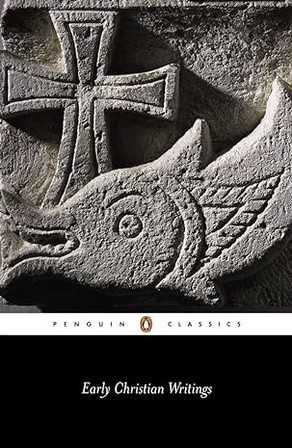
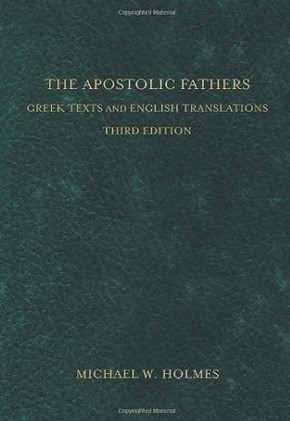
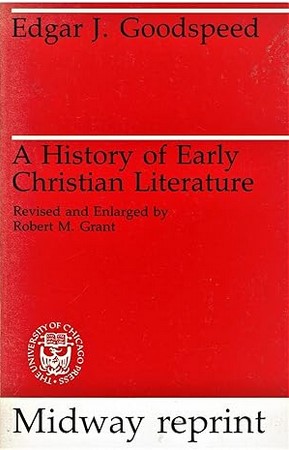
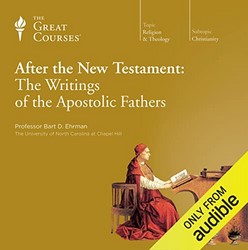
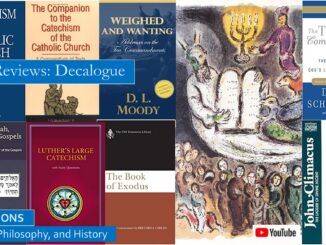
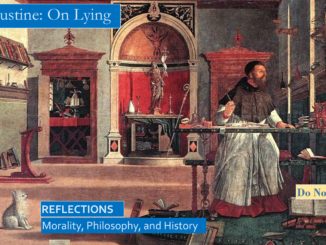

1 Trackback / Pingback